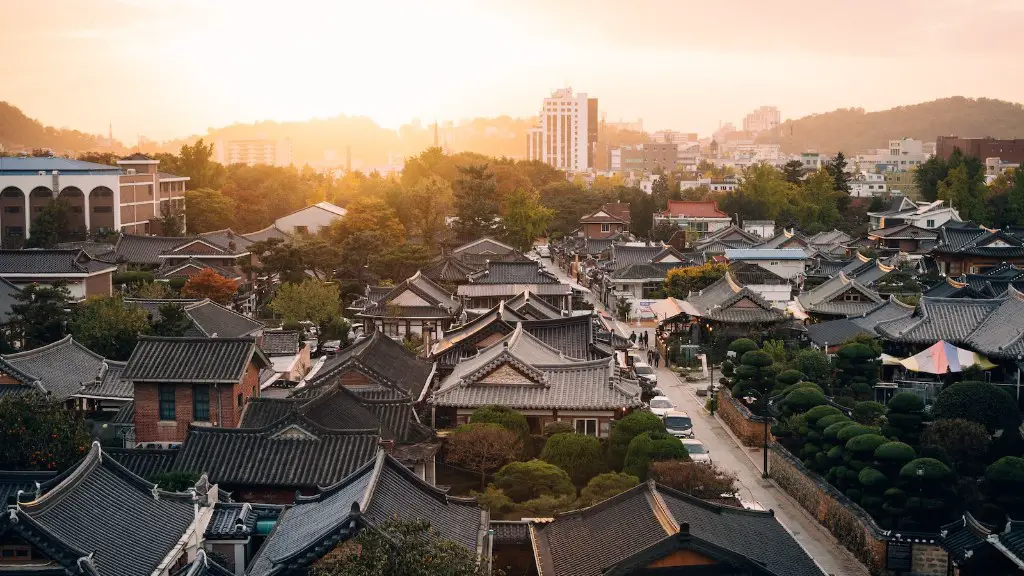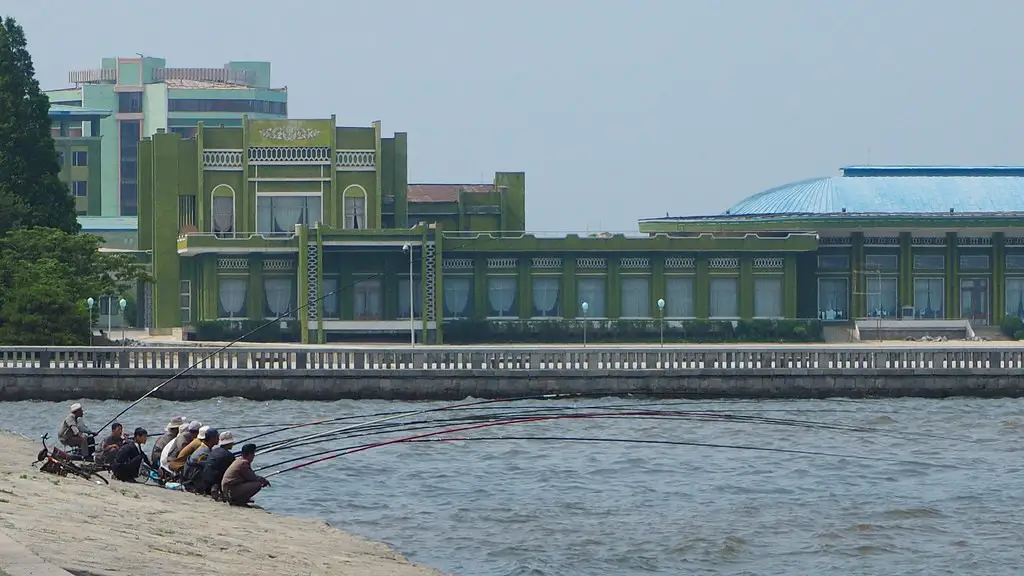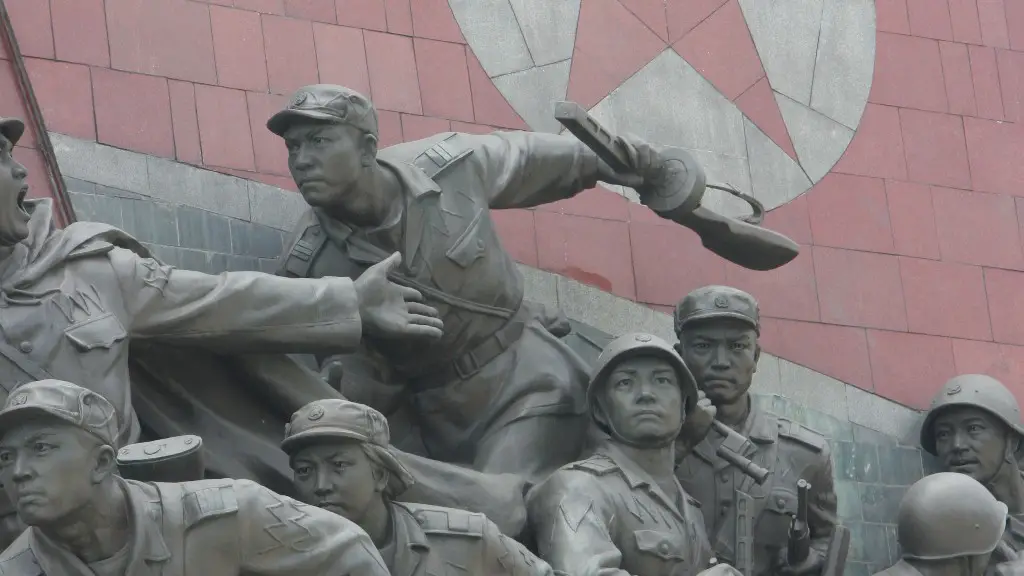What Is North Korea?
North Korea is one of the most secretive countries in the world. It is a totalitarian state governed by the totalitarian principles of the Communist Party, led by the Supreme Leader Kim Jong Un. It is one of the few nations recognized as a nuclear power and is known for its military aggression and its lack of transparency. North Korea is also an oppressive state, severely restricting the rights of its citizens. North Korea has one of the worst human rights records in the world and is one of the most closed-off countries, with little access to the outside world.
Reasons Citizens Can’t Leave North Korea
The primary reason North Koreans cannot leave their country is because the government strictly controls the movement of its citizens. North Koreans must obtain an official documentation to travel, and the process of obtaining one is difficult and lengthy. Furthermore, these documents are often restricted to certain destinations and types of travel. Even those who do succeed in obtaining a travel document are not allowed to travel beyond the borders of the country.
In addition, the government also imposes a heavy fine on those who attempt to leave the country without permission. In some cases, escapees have been found guilty of treason and were subsequently punished with a number of years in a labour camp. This harsh punishment deters many citizens from leaving, as they fear what will happen to them if they try. Even if they do successfully flee, they must decide whether to bring their families with them or leave them behind, which carries its own set of risks and dangers.
Challenges Facing Children from North Korea
Children from North Korea face a number of challenges if they attempt to leave the country. Since North Korea does not allow its citizens to travel freely, children must contact smugglers in order to leave the country. This is a dangerous and costly undertaking, as smugglers often demand large sums of money for their services, and the journey itself is fraught with danger. Furthermore, many countries are reluctant to accept North Korean refugees, making it difficult for them to find a new home.
Additionally, North Korean children face additional challenges after they have escaped. Since North Korea is such a closed-off country, most refugees lack basic skills and knowledge needed to succeed in their new environment. Many do not know how to speak the language of their host nation, or are not familiar with the customs and cultures of these countries. These factors make it difficult for North Korean children to adjust to their new lives and make it hard for them to build a successful future.
The Impact of North Korea’s Repression
The North Korean government’s strict control over movement has had a devastating impact on the country’s population. Not only does it stop citizens from travelling, but it also limits their ability to access basic amenities and services. Citizens who lack the documentation needed to travel are unable to receive medical treatment or access social services. This lack of travelling also further reinforces existing divisions within the country, as citizens are unable to travel and interact with one another.
The government’s repression also makes it difficult for citizens to access information from the outside world. This limits their ability to form opinions and talk openly about their opinions. Consequently, many North Koreans remain unaware of international events and trends, and hence remain isolated from the rest of the world.
Effects of North Korea’s Political System
While it is difficult for citizens to flee North Korea, the oppressive environment created by the regimes’ policies makes life even more difficult for citizens who remain in the country. North Koreans are subject to decades of state propaganda, which indoctrinates citizens from a young age. Citizens are taught to revere the Supreme Leader, and to believe in the superiority of the North Korean system over other systems. This leads to a lack of knowledge about the world and a lack of appetite for independent thought. Furthermore, citizens cannot express their dissent openly, as this could lead to imprisonment or even death.
The country’s political system has also led to economic stagnation, as the government has a heavy control over the economy and limits foreign investment. This has led to economic hardship, with a dramatic decrease in living standards. As a result, life in North Korea is marked by poverty and deprivation.
Political Aim of North Korea’s Regime
The aim of the North Korean regime is to maintain absolute control over its population and to ensure the continuation of its oppressive system. To this end, the government has created a cult of personality around the Supreme Leader and ensures that citizens abide by the rules of the state. This enables the government to stifle dissent and prevent citizens from challenging the regime. The government also tightly controls access to the outside world, thereby limiting the exposure of citizens to different ideas or different points of view.
The government also seeks to create an atmosphere of fear and paranoia, in order to make citizens reluctant to leave the country. The regime uses a number of tactics, such as imposing punishments on those who attempt to leave and threatening citizens with dire consequences if they fail to adhere to the rules. This atmosphere of fear and intimidation makes it extremely difficult for citizens to travel or even consider leaving the country altogether.
United Nations Response to North Korea
The United Nations has been actively involved in addressing the issues in North Korea, particularly the human rights violations caused by the regime. In 2017, the UN Commission of Inquiry released a report condemning the regime for its brutal and oppressive policies and for infringing on the human rights of its citizens. The report included a range of recommendations for the international community, including clarifying the laws governing the transportation and other restrictions imposed on citizens. Additionally, the report urged North Korea to respect the rights of its citizens and to work towards resolving its many human rights violations.
The UN has also proposed a number of resolutions, such as sanctions against North Korea, in order to pressure the regime to stop its oppressive policies. However, the regime has largely ignored the UN’s demands and continues to impose harsh restrictions on its citizens.
Conclusion
North Korea is one of the most closed-off and oppressive countries in the world. Its restrictive policies prevent citizens from travelling and expose them to risk and a lack of essential services. The government’s oppressive measures also limit citizens’ ability to access information and form opinions, thereby preventing them from making their own choices. The international community, including the United Nations, has attempted to pressure the North Korean regime to change its policies, however the regime has largely ignored these demands. Consequently, citizens’ fears of persecution, imprisonment, or even death prevent them from leaving North Korea, making it one of the most difficult places to escape from.


